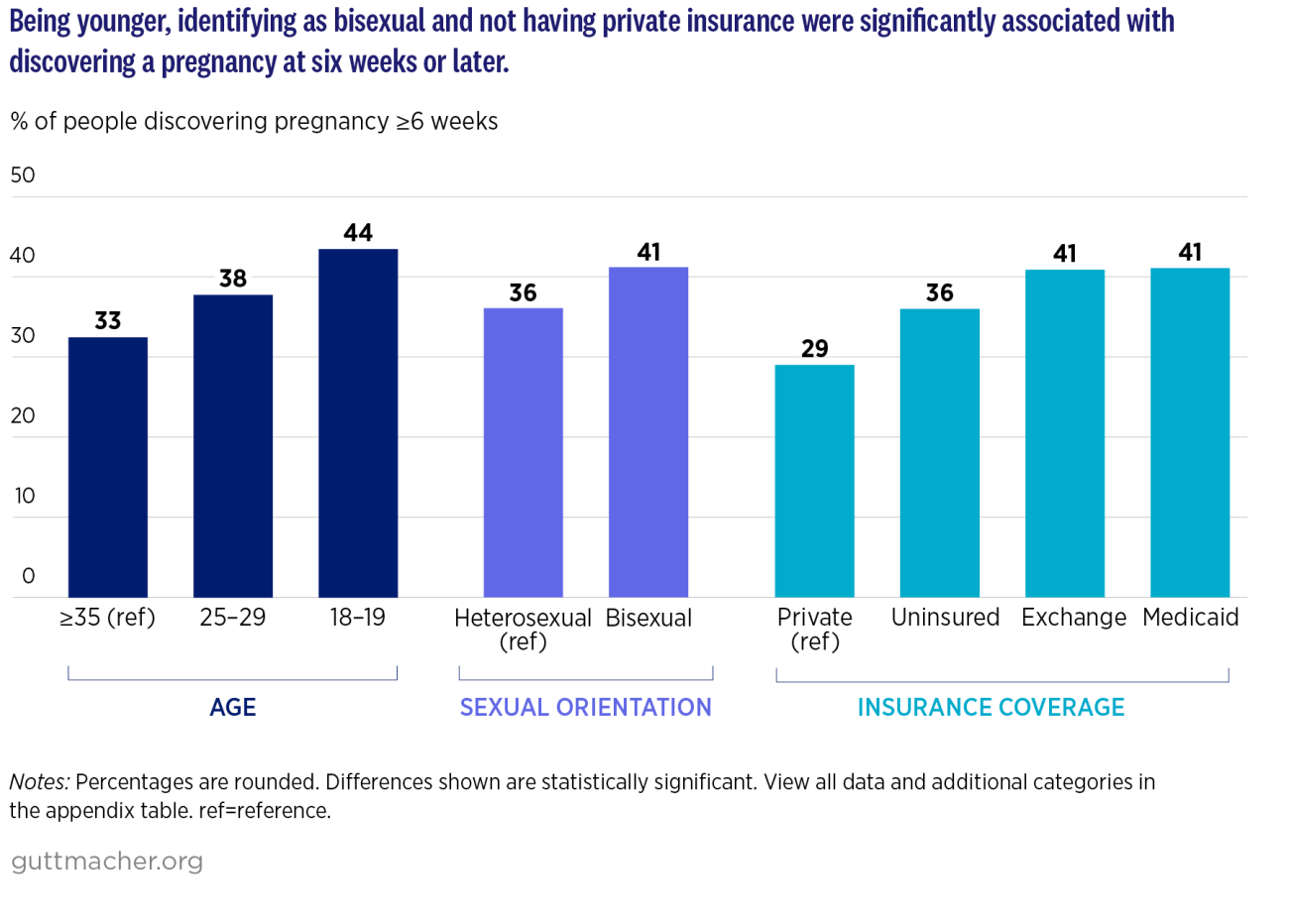Updated on October 7, 2024:
Edited to reflect a Supreme Court of Georgia ruling reinstating Georgia’s six-week abortion ban, which had been struck down one week prior by a lower court. See our interactive map for the latest state abortion policies in effect.
All bans restricting abortion based on gestation are unjust; these arbitrary limits can make abortion inaccessible, leaving pregnant people’s reproductive autonomy dependent on their state of residence. But six-week abortion bans are especially pernicious because they prohibit abortion before many people know they are pregnant. Uncovering information on the timing of pregnancy recognition is vital to understanding the harmful effects of abortion bans based on gestation and who is most affected by them.
A new analysis of data from the Guttmacher Institute’s 2021–2022 Abortion Patient Survey finds that 37% of people accessing abortion discovered their pregnancy at six weeks or later. The survey collected information from a national sample of more than 6,500 people who obtained abortions in clinics across the United States between June 2021 and July 2022 (methodological details below).
Although collected before the US Supreme Court’s ruling in Dobbs v. Jackson Women’s Health Organization and the ensuing implementation of numerous state-level abortion bans, these data offer insights that apply to the current and ongoing threat posed by bans based on gestational duration. This research complements findings from previous studies by showing how six-week bans have an outsized impact on those already facing the greatest barriers to care. And though our survey includes only people who obtained abortion care, prior research suggests that the timing of pregnancy recognition is similar among all pregnant people—not just those who seek abortion.


